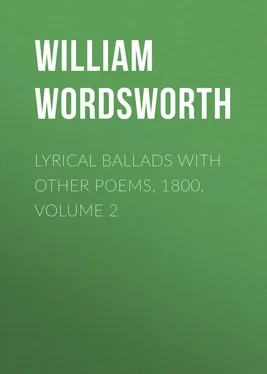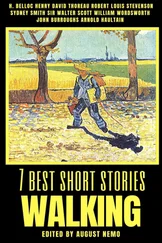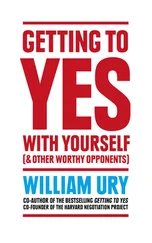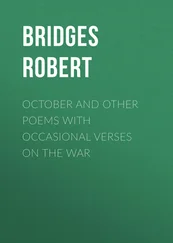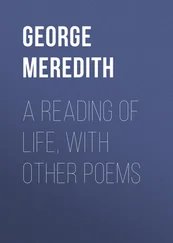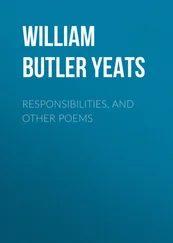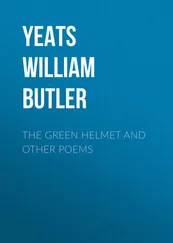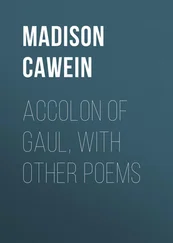William Wordsworth - Lyrical Ballads with Other Poems, 1800, Volume 2
Здесь есть возможность читать онлайн «William Wordsworth - Lyrical Ballads with Other Poems, 1800, Volume 2» — ознакомительный отрывок электронной книги совершенно бесплатно, а после прочтения отрывка купить полную версию. В некоторых случаях можно слушать аудио, скачать через торрент в формате fb2 и присутствует краткое содержание. Жанр: literature_19, Поэзия, foreign_prose, foreign_poetry, на английском языке. Описание произведения, (предисловие) а так же отзывы посетителей доступны на портале библиотеки ЛибКат.
- Название:Lyrical Ballads with Other Poems, 1800, Volume 2
- Автор:
- Жанр:
- Год:неизвестен
- ISBN:нет данных
- Рейтинг книги:4 / 5. Голосов: 1
-
Избранное:Добавить в избранное
- Отзывы:
-
Ваша оценка:
- 80
- 1
- 2
- 3
- 4
- 5
Lyrical Ballads with Other Poems, 1800, Volume 2: краткое содержание, описание и аннотация
Предлагаем к чтению аннотацию, описание, краткое содержание или предисловие (зависит от того, что написал сам автор книги «Lyrical Ballads with Other Poems, 1800, Volume 2»). Если вы не нашли необходимую информацию о книге — напишите в комментариях, мы постараемся отыскать её.
Lyrical Ballads with Other Poems, 1800, Volume 2 — читать онлайн ознакомительный отрывок
Ниже представлен текст книги, разбитый по страницам. Система сохранения места последней прочитанной страницы, позволяет с удобством читать онлайн бесплатно книгу «Lyrical Ballads with Other Poems, 1800, Volume 2», без необходимости каждый раз заново искать на чём Вы остановились. Поставьте закладку, и сможете в любой момент перейти на страницу, на которой закончили чтение.
Интервал:
Закладка:
It may be then —
Never did worthier lads break English bread:
The finest Sunday that the Autumn saw,
With all its mealy clusters of ripe nuts,
Could never keep these boys away from church,
Or tempt them to an hour of sabbath breach.
Leonard and James! I warrant, every corner
Among these rocks and every hollow place
Where foot could come, to one or both of them
Was known as well as to the flowers that grew there.
Like roe-bucks they went bounding o'er the hills:
They play'd like two young ravens on the crags:
Then they could write, aye and speak too, as well
As many of their betters – and for Leonard!
The very night before he went away,
In my own house I put into his hand
A Bible, and I'd wager twenty pounds,
That, if he is alive, he has it yet.
It seems, these Brothers have not liv'd to be
A comfort to each other. —
That they might
Live to that end, is what both old and young
In this our valley all of us have wish'd,
And what, for my part, I have often pray'd:
But Leonard —
Then James still is left among you —
'Tis of the elder Brother I am speaking:
They had an Uncle, he was at that time
A thriving man, and traffick'd on the seas:
And, but for this same Uncle, to this hour
Leonard had never handled rope or shroud.
For the Boy lov'd the life which we lead here;
And, though a very Stripling, twelve years old;
His soul was knit to this his native soil.
But, as I said, old Walter was too weak
To strive with such a torrent; when he died,
The estate and house were sold, and all their sheep,
A pretty flock, and which, for aught I know,
Had clothed the Ewbauks for a thousand years.
Well – all was gone, and they were destitute.
And Leonard, chiefly for his brother's sake,
Resolv'd to try his fortune on the seas.
'Tis now twelve years since we had tidings from him.
If there was one among us who had heard
That Leonard Ewbank was come home again,
From the great Gavel 3 3 The great Gavel, so called I imagine, from its resemblance to the Gable end of a house, is one of the highest of the Cumberland mountains. It stands at the head of the several vales of Ennerdale, Wastdale, and Borrowdale. The Leeza is a River which follows into the Lake of Ennerdale: on issuing from the Lake, it changes its name, and is called the End, Eyne, or Enna. It falls into the sea a little below Egremont.
, down by Leeza's Banks,
And down the Enna, far as Egremont,
The day would be a very festival,
And those two bells of ours, which there you see
Hanging in the open air – but, O good Sir!
This is sad talk – they'll never sound for him
Living or dead – When last we heard of him
He was in slavery among the Moors
Upon the Barbary Coast – 'Twas not a little
That would bring down his spirit, and, no doubt,
Before it ended in his death, the Lad
Was sadly cross'd – Poor Leonard! when we parted,
He took me by the hand and said to me,
If ever the day came when he was rich,
He would return, and on his Father's Land
He would grow old among us.
If that day
Should come, 'twould needs be a glad day for him;
He would himself, no doubt, be as happy then
As any that should meet him —
Happy, Sir —
You said his kindred all were in their graves,
And that he had one Brother —
That is but
A fellow tale of sorrow. From his youth
James, though not sickly, yet was delicate,
And Leonard being always by his side
Had done so many offices about him,
That, though he was not of a timid nature,
Yet still the spirit of a mountain boy
In him was somewhat check'd, and when his Brother
Was gone to sea and he was left alone
The little colour that he had was soon
Stolen from his cheek, he droop'd, and pin'd and pin'd;
But these are all the graves of full grown men!
Aye, Sir, that pass'd away: we took him to us.
He was the child of all the dale – he liv'd
Three months with one, and six months with another:
And wanted neither food, nor clothes, nor love,
And many, many happy days were his.
But, whether blithe or sad, 'tis my belief
His absent Brother still was at his heart.
And, when he liv'd beneath our roof, we found
(A practice till this time unknown to him)
That often, rising from his bed at night,
He in his sleep would walk about, and sleeping
He sought his Brother Leonard – You are mov'd!
Forgive me, Sir: before I spoke to you,
I judg'd you most unkindly.
But this youth,
How did he die at last?
One sweet May morning,
It will be twelve years since, when Spring returns,
He had gone forth among the new-dropp'd lambs,
With two or three companions whom it chanc'd
Some further business summon'd to a house
Which stands at the Dale-head. James, tir'd perhaps,
Or from some other cause remain'd behind.
You see yon precipice – it almost looks
Like some vast building made of many crags,
And in the midst is one particular rock
That rises like a column from the vale,
Whence by our Shepherds it is call'd, the Pillar.
James, pointing to its summit, over which
They all had purpos'd to return together,
Inform'd them that he there would wait for them:
They parted, and his comrades pass'd that way
Some two hours after, but they did not find him
At the appointed place, a circumstance
Of which they took no heed: but one of them,
Going by chance, at night, into the house
Which at this time was James's home, there learn'd
That nobody had seen him all that day:
The morning came, and still, he was unheard of:
The neighbours were alarm'd, and to the Brook
Some went, and some towards the Lake; ere noon
They found him at the foot of that same Rock
Dead, and with mangled limbs. The third day after
I buried him, poor Lad, and there he lies.
And that then is his grave! – Before his death
You said that he saw many happy years?
Aye, that he did —
And all went well with him —
If he had one, the Lad had twenty homes.
And you believe then, that his mind was easy —
Yes, long before he died, he found that time
Is a true friend to sorrow, and unless
His thoughts were turn'd on Leonard's luckless fortune,
He talk'd about him with a chearful love.
He could not come to an unhallow'd end!
Nay, God forbid! You recollect I mention'd
A habit which disquietude and grief
Had brought upon him, and we all conjectur'd
That, as the day was warm, he had lain down
Upon the grass, and, waiting for his comrades
He there had fallen asleep, that in his sleep
He to the margin of the precipice
Had walk'd, and from the summit had fallen head-long,
And so no doubt he perish'd: at the time,
We guess, that in his hands he must have had
His Shepherd's staff; for midway in the cliff
It had been caught, and there for many years
It hung – and moulder'd there.
Интервал:
Закладка:
Похожие книги на «Lyrical Ballads with Other Poems, 1800, Volume 2»
Представляем Вашему вниманию похожие книги на «Lyrical Ballads with Other Poems, 1800, Volume 2» списком для выбора. Мы отобрали схожую по названию и смыслу литературу в надежде предоставить читателям больше вариантов отыскать новые, интересные, ещё непрочитанные произведения.
Обсуждение, отзывы о книге «Lyrical Ballads with Other Poems, 1800, Volume 2» и просто собственные мнения читателей. Оставьте ваши комментарии, напишите, что Вы думаете о произведении, его смысле или главных героях. Укажите что конкретно понравилось, а что нет, и почему Вы так считаете.
